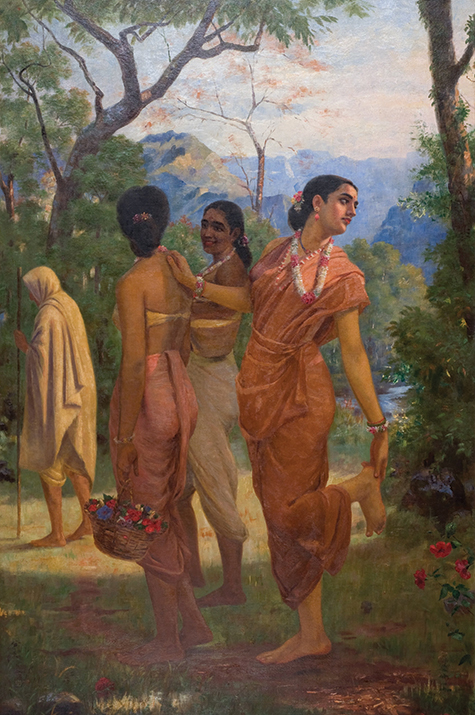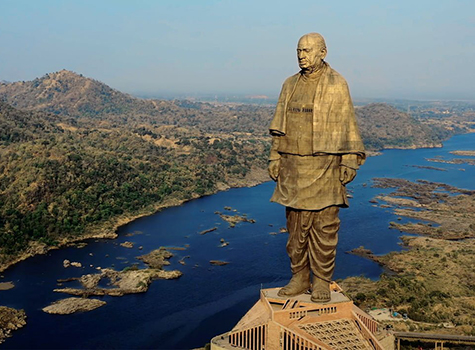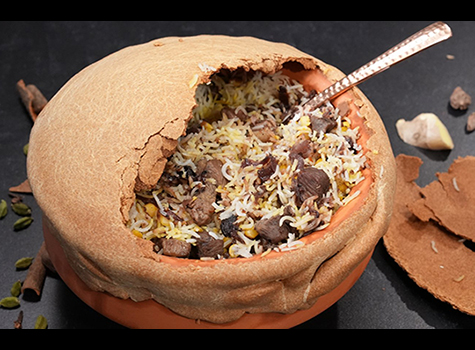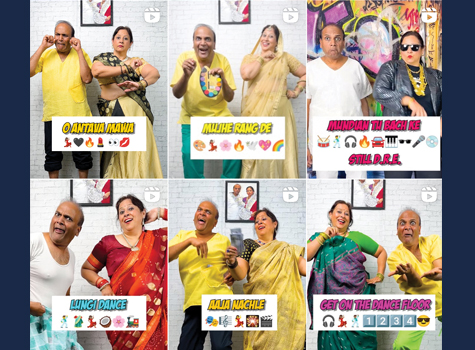“Thus does unbridled levity burn.
Be slow to love, but yet more slow with secret mate;
With those whose hearts we do not know,
Love turns to hate.”
Do these lines resonate with you? The words of caution applicable to young hearts even today are from the Sanskrit play, “Abhigyana Shakuntalam” translated as, “The Recognition of Shakuntala”. You may have heard of “Shakuntala”, the proverbial tale as old as time introduced to us in the Indian epic The Mahabharat.
The popularity of this tale from the epic, is credited to the exquisite play by Kalidasa. Once dismissed as an illiterate fool, it is said that Kalidasa earned a boon from Goddess Saraswati and thereby emerged as a Sanskrit poet par excellence.
His literary works have stood the test of time and is appreciated across cultures. Unsurprisingly, he continues to teach us a few lessons.
 My fascination with drama was a result of the terrific plays that my high school in Mumbai presented. Each year we were introduced to a different genre of theatre and as we collaborated to sew all the elements of a play together, we became aware of various writing styles, theatre skills, different cultures as well as the trials and tribulations of putting together our annual production. So, when I wanted to introduce my children to Indian literature, I hypothesized that theatre would be a good medium. After enacting stories from the Jataka and Panchatantra tales and contemporary plays, it was time to embrace a greater challenge. Shakuntala’s timeless appeal was a logical choice and with great joy combined with trepidation, I placed myself at the helm of the production. Centuries ago, Kalidasa had adapted this story from The Mahabharat and crafted the play in Sanskrit but I had to turn to the acclaimed English translation by Arthur W. Ryder for the script. The irony of that is not lost on me. A regrettable consequence of colonization and the Westernization in India is the loss of many elements of ancient culture including languages. The language of the Vedas may be steadily fading with a decline in formal studies and use in popular media, but the immutable teachings of the scriptures survive.
My fascination with drama was a result of the terrific plays that my high school in Mumbai presented. Each year we were introduced to a different genre of theatre and as we collaborated to sew all the elements of a play together, we became aware of various writing styles, theatre skills, different cultures as well as the trials and tribulations of putting together our annual production. So, when I wanted to introduce my children to Indian literature, I hypothesized that theatre would be a good medium. After enacting stories from the Jataka and Panchatantra tales and contemporary plays, it was time to embrace a greater challenge. Shakuntala’s timeless appeal was a logical choice and with great joy combined with trepidation, I placed myself at the helm of the production. Centuries ago, Kalidasa had adapted this story from The Mahabharat and crafted the play in Sanskrit but I had to turn to the acclaimed English translation by Arthur W. Ryder for the script. The irony of that is not lost on me. A regrettable consequence of colonization and the Westernization in India is the loss of many elements of ancient culture including languages. The language of the Vedas may be steadily fading with a decline in formal studies and use in popular media, but the immutable teachings of the scriptures survive.
Truth be told, I am not well versed in Hindu scriptures and most of my knowledge about the epics come from my formative years thanks to my mother’s gift of storytelling, graphic novels published as “Amar Chitra Katha” and Doordarshan’s TV shows.
I still recall how everything came to a standstill when Mahabharat was on air. Decades later, I only had the outline of Shakuntala’s chapter in mind. Studying it in detail was enlightening which speaks to Kalidasa’s strength as a playwright.
Initially, I was apprehensive of introducing a sexist and perhaps outdated story to young, impressionable minds, however, I was pleasantly surprised. Barring a few stereotyped metaphors, I discovered that the characters were multifaceted and expressed an array of emotions.
For example, King Dushyant was depicted not only as a brave warrior but also as a romantic. Kalidasa took great care in presenting the protagonist, Shakuntala. She is portrayed as an innocent young woman enamored by the King but one who can speak her mind and stand her ground.
Don’t mistake her for a demure castaway because she is a young woman capable of calling out the King’s betrayal and hypocrisy. Interestingly, Kalidasa excluded the part from the Mahabharat where Shakuntala agrees to the “Gandharv Vivah” (marriage by mutual consent that does not require rituals or witnesses) only if he promises to make her future offspring the heir to his throne. I thought it was rather astute of him, as that would have rendered Shakuntala as an opportunist and lost the audience’s sympathy.
To Dushyant’s credit, he was not the irresponsible womanizer but a victim of the circumstances that erased the memory of his romance with Shakuntala. He is later shown to regret his failure to recognize his wife, Shakuntala as well as overcome with despair when he does not find her. I was particularly pleased to see that the key women in Shakuntala’s life consistently offered their protection. Shakuntala’s mother, Menaka was cursed and thus forced to leave her baby in the care of an ashram and return to Indra Lok (the Heavens). As a mother, she seeks the help of her friend, Mishrakesha to watch over her child so that her daughter has a secret guardian. The loyal friend, Mishrakesha assists in the reunion of Shakuntala and Dushyant only when she is convinced that Dushyant is genuine in both his love and repentance. Additionally, Shakuntala’s young friends, Priyamvada and Anusuya in a bold move, interview their King to ensure that his love is pure and characterized by fidelity. Towards the end, Aditi, the mother of the gods, advises Shakuntala to release her anger to clear the past and start anew with her reunited husband so that they have a fair chance at being happy.
None of the women, expected Shakuntala to return to Dushyant or forgive him to merely follow norms or because he was the husband she chose to marry of her own accord. They believed that she deserved a loving husband who respected her. Surprisingly, these seemingly modern characteristics are often missing from contemporary sources of entertainment.
The only thing, I felt compelled to add in the script, was the voice of Menaka. My goal was to provide a commentary about Menaka’s no-win situation where she was both the spear that was aimed by Indra, the God of the Heavens, when he felt threatened and the shield that bore the brunt of Vishwamitra’s anger. Sage Vishwamitra sought greater powers but failed to conduct his duties as a father to Shakuntala. She, like her daughter, was a victim of the insecurities of powerful men.
In my interpretation, Kalidasa explains that a woman deserves love not abandonment. Wielding powers does more harm than good and hurts the innocent. In fact, men are admirable not only when they are brave but also when they humbly accept their mistakes. The female characters, to me, as a woman and mother, are remarkable due to their individuality, spirit of solidarity and the capability of making their own choices. The magic of great literature transcends time and place and I hope that they inspire the writers of today’s shows and movies to produce true classics.
Shyama Parui is a long time North Carolina resident and an ardent writer. You can reach her at: shyamashree_parui@hotmail.com



